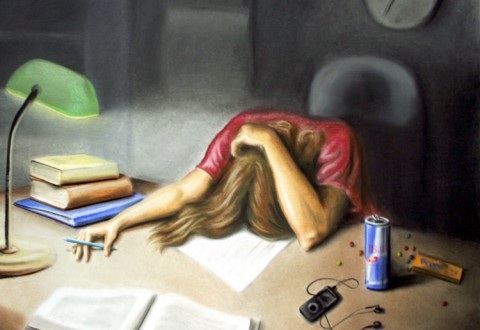
It is believed that anywhere from 45-71% of med students are affected by burnout, which is "defined as the triad of emotional exhaustion, diminished sense of accomplishment, and depersonalization". Though Yu points out that burnout tends to persist into residency and beyond, and may negatively affect patient care, he also expresses that for some of us, burnout may increase our risk of suicide and mental health conditions like depression.
"However, when bright, idealistic, passionate students are treated like emotionless robots, they start to become them. In the medical education community, this phenomenon is well-characterized as part of medical school’s “hidden curriculum.” By forcing students to perform menial tasks, we implicitly teach them that hospitals are not enjoyable places to learn and work. By not caring about how students feel, we teach them that getting the job done is more important than considering the feelings of others, which limits students from developing empathy for patients or compassionately treating their colleagues. Such experiences, repeated over and over, drain medical students of their energy and motivation, leaving them emotionally exhausted. Students begin to take less pride in their daily accomplishments. What was once their dream job now leaves them feeling detached and cynical. In short, they burn out – even before they become fully-qualified physicians."
Read the full article here: http://www.kevinmd.com/blog/2015/09/physician-burnout-starts-in-medical-school-but-it-doesnt-have-to.html
 RSS Feed
RSS Feed
